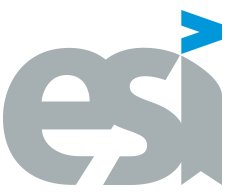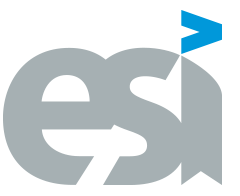Shortcuts

For the newly admitted students have all the information they need, we have prepared the following Student Guide: Sign in. In this guide you will also find an interesting section on FAQs.
In addition, at the beginning of the course the Welcome Days where the necessary information is provided to start the course on the right foot and resolve all the doubts that may arise. In this link it is possible to access the material used in the presentations.
It should be noted that the ESI carries out every year the Mathematics and Physics Course Zero, which aims to review the basic contents of these subjects in order to successfully tackle certain subjects of the study plan. This course takes place the week before classes start.
The students from training cycles they have the possibility of validating certain subjects. The validation tables can be consulted in the following link. Very soon we will post the new tables that extend the training cycles that can validate subjects.
The University of Castilla - La Mancha and the Superior School of Computing of Ciudad Real have a commitment to the accessibility and full integration of students with special needs, providing accessible facilities and addressing any difficulties that may arise during the academic life of all students. For more information, you can consult the website of the Support Service for Students with Disabilities.
El overall objective of the Degree in Computer Engineering is to ensure that its graduates acquire the following skills and abilities that are extracted from the Resolution of June 8, 2009, of the General Secretariat of Universities, by which the Council Agreement is publicized of Universities, which establishes recommendations for the proposal by the Universities of application reports for official titles in the field of Technical Computer Engineering (BOE No. 187 of 4/8/2009):
More information on Objectives, Competences y Justification of the Title in the Memory of the Bachelor's Degree in Computer Engineering
The appropriate entry profile for those students who are going to start the studies of this degree should include the following knowledge and skills:
Regarding the access requirements, in accordance with article 14.1 of Royal Decree 1393/2007, on the Regulation of Official University Teaching, access to the teachings of the Graduate degree in Computer Engineering will require having a bachelor's degree or equivalent. and passing the test referred to in article 42 of Organic Law 6/2001, on Universities, modified by Law 4/2007, of April 12, without prejudice to the other access mechanisms provided for by current regulations .
| Cookie | Duration | Description |
|---|---|---|
| cookielawinfo-checkbox-advertisement | 1 year | Set by the GDPR Cookie Consent plugin, this cookie is used to record the user consent for the cookies in the "Advertisement" category. |
| cookielawinfo checkbox analytics | 11 months | This cookie is set by GDPR Cookie Consent plugin. The cookie is used to store the user consent for the cookies in the category "Analytics". |
| cookielawinfo checkbox functional | 11 months | The cookie is set by GDPR cookie consent to record the user consent for the cookies in the category "Functional". |
| cookielawinfo-checkbox-Necessary | 11 months | This cookie is set by GDPR Cookie Consent plugin. The cookies are used to store the user consent for the cookies in the category "Necessary". |
| cookielawinfo-checkbox-fastrs | 11 months | This cookie is set by GDPR Cookie Consent plugin. The cookie is used to store the user consent for the cookies in the category "Other. |
| cookielawinfo checkbox performance | 11 months | This cookie is set by GDPR Cookie Consent plugin. The cookie is used to store the user consent for the cookies in the category "Performance". |
| CookieLawInfoConsent | 1 year | Records the default button state of the corresponding category & the status of CCPA. It works only in coordination with the primary cookie. |
| viewed_cookie_policy | 11 months | The cookie is set by the GDPR Cookie Consent plugin and is used to store whether or not the user has consented to the use of cookies. It does not store any personal data. |
| Cookie | Duration | Description |
|---|---|---|
| _ga | 2 years | The _ga cookie, installed by Google Analytics, calculates visitor, session and campaign data and also keeps track of site usage for the site's analytics report. The cookie stores information anonymously and assigns a randomly generated number to recognize unique visitors. |
| _ga_660H2MJ19C | 2 years | This cookie is installed by Google Analytics. |
| _gat_gtag_UA_199993715_1 | 1 minutes | Set by Google to distinguish users. |
| _gid | 1 day | Installed by Google Analytics, _gid cookie stores information on how visitors use a website, while also creating an analytics report of the website's performance. Some of the data that are collected include the number of visitors, their source, and the pages they visit anonymously. |
| CONSENT | 2 years | YouTube sets this cookie via embedded youtube videos and registers anonymous statistical data. |
| Cookie | Duration | Description |
|---|---|---|
| VISITOR_INFO1_LIVE | 5 months 27 days | A Cookie Set by YouTube to Measure Bandwidth That Determine Whether The User Gets The New Or Old Player Interface. |
| YSC | Session | YSC Cookie is set by youtube and is used to track the views of embedded Videos on YouTube Pages. |
| yt remote connected devices | never | YouTube Sets This Cookie To Store The Video Preferences of The User Using Embedded YouTube Video. |
| yt remote device id | never | YouTube Sets This Cookie To Store The Video Preferences of The User Using Embedded YouTube Video. |



